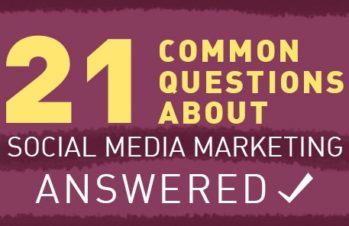You’re in the legal field, so social media marketing doesn’t apply to you. Right? Absolutely wrong. You may be a lawyer or a law firm, but you’re still a business. If social media is where your prospective clients are – and believe me, they are – that’s where you need to be. So how does a smart lawyer use social media without getting into serious trouble?
Start a blog that focuses on your practice area.
For example: a lawyer with expertise in banking or finance could write a post detailing how to file for bankruptcy. Immigration lawyers could explain the different types of visas, including requirements and application processes. Blogging is a great way for you to show off that expertise (and your finely-crafted writing skills), while also adding more of a “human” personality to your firm. With the correct use of keywords and phrases, you’ll also reap the SEO benefits in the long run.
Speaking of personality…
For individual lawyers, social media doesn’t need to be all about legal stuff, all the time. In fact, it probably shouldn’t be. Specifically if you’re focusing on Twitter, you can balance legal content with tweets about your hobbies, favorite sports teams, family, or vacation plans. You’re a person with a life outside your career (I hope). People looking for a lawyer are looking to communicate with a real, live human being – not a lawyer-bot (the obvious exceptions being people from the future and the seriously tech-obsessed).
Become a source for news.
This can be as easy as tweeting news stories on relevant topics a few times a week, or you can take it to the next level and blog about recent legal developments. Many successful social media strategies rely on content aggregation and curation, in addition to creation. Why? It demonstrates that you have a worldview extending beyond your firm’s walls. Demonstrate that you really get what’s going on in your field, and you just may impress potential future clients.
Don’t accidentally get yourself into trouble.
There’s a difference between sharing insight on a topic and actually giving legal advice over the Internet. As I’m sure you know, do not leave room for your thoughts to be interpreted as legal advice. If you’re on Twitter, include a blurb in your bio along the lines of “Thoughts here should not be taken as legal advice,” in the same way many professionals indicate that their opinions do not represent their employers.
It should also go without saying, but any conduct that would be inappropriate anywhere else is also inappropriate on social media. For example? If you can’t reveal confidential client information anywhere else, you definitely can’t do it on Facebook. If you’re not supposed to discuss details of ongoing cases, you should also not post that information on Twitter. Sure, roll your eyes. People really do these things.
Create a social media policy.
This is the simplest way for a law firm to keep itself and its employees out of trouble: set up guidelines for social media use. First, clearly define your goals. Clearly define what constitutes social media: Facebook, Twitter, blogging platforms, and LinkedIn should definitely be on any list, but you may want to include other sites you think are relevant. Next, clearly state who is allowed to speak on behalf of your firm. You might allow other employees to state that they work for you, but do not represent your views (as many companies do). Finally, make sure you state what the consequences are for breaking the social media policy. Be specific.
If you’re a lawyer using social media, leave us a comment to let us know what you’ve learned!






